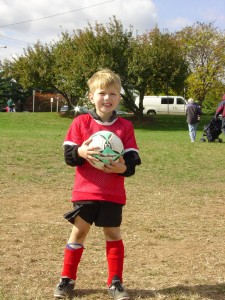It has been widely recognized that extra-curricular activities can provide stability for adolescents and children and can reduce incidences of mental health issues such as substance abuse, delinquency, and depression (Lee, 2015). Participation in a sport or activity can provide young people with a sense of identity, a valuable social circle of positive peer role models, and a schedule/structure that further keeps them on the right track. Sports in general can provide children with a variety of life-skills such as sharing, teamwork, and communication skills and as the athlete matures into adolescence, these skills are further developed. In addition, other skill sets such as leadership, discipline, and conflict resolution may be developed, as well as developing nurturing benefits such as increased self-esteem, the ability to work independently or as a team member, and the ability to balance a healthy school-sport-social life schedule. It is imperative that the athlete is in a healthy environment where he or she is guided by positive role models in the form of coaches, teachers, mentors etc., but if she is in this type of environment the psychological and social benefits will be many. Sedentary lifestyles in children and adults can lead to anxiety and depressive disorders and, as mentioned in a previous CFCC blog (September 7, 2015), 5-10% of children suffer with an anxiety disorder. If these are not prevented or are left untreated, they can cause severe disruption to the individual later in adolescence, and into adulthood.
Physical Activity vs Competitive Sports
Not every child will be at a competitive level of sports participation – nor would they all want to be. However, the benefits for less competitive athletes – and even those undertaking physical activity for fun/recreational use – remain plentiful. In addition to the aforementioned benefits, children who are already suffering from anxiety and depressive disorders are also likely to see positive health changes from participation in general physical activity, even without the competitive element of sports. These positive benefits may include feelings of improved mood, enjoyment and achievement, and reduced symptoms (Carter, 2015).
Aside from the social and career benefits, sports/physical activity participation to date has been found to help in the prevention, and treatment, of many mental and physical issues including:
- Improved sleep
- Better endurance
- Stress relief
- Improvement in mood
- Increased energy and stamina
- Reduced tiredness that can increase mental alertness
- Weight reduction
- Reduced cholesterol and improved cardiovascular fitness
National Institutes of Health
In addition, in children, exercise has been found to aid in the treatment of Attention Deficit Disorder (ADD) and Attention Deficit Hyperactivity Disorder (ADHD), and emotional regulation issues such as anger. Further to this, childhood obesity has become a major talking point in recent years, with empirical evidence highlighting what has become an epidemic, and pediatric (and adult) diabetic diagnoses continue to rise. In addition, other health problems such as early onset of heart disease are now being linked to sedentary children.
But what if the child is non-athletic in nature and has no interest in sports or exercise? Caregivers and adults in the lives of these children should be aware of the various health benefits of exercise and assist the child in finding a way to remain healthy through exercise and other means for recreation. But ALL of these children can benefit from extra-curricular activities that provide them with a plethora of developmental skills that will stay with them for life. Schools, churches, housing associations, and community youth groups all offer various non-sporting activities that children can get involved with. As an added benefit over time, this strengthens their portfolio/resume for when the time comes to apply to college.
Dave Edwards is the clinical intern at Crossroads Family Counseling Center,LLC in Fairfax, VA. He is a student in the M.A. in Clinical Mental Health Counseling program at Marymount University in Arlington, VA. He is also a full-time professional soccer coach and has been working with youth for 27 years.
